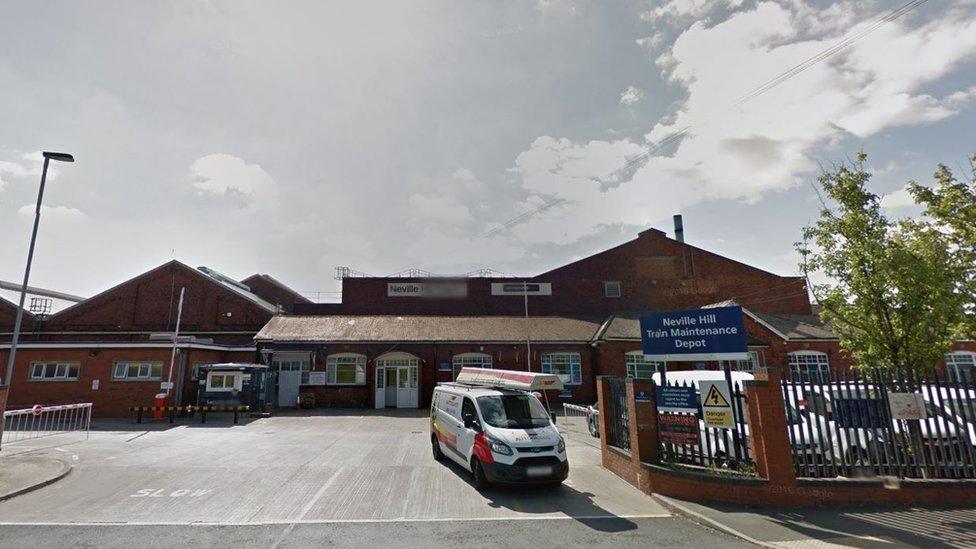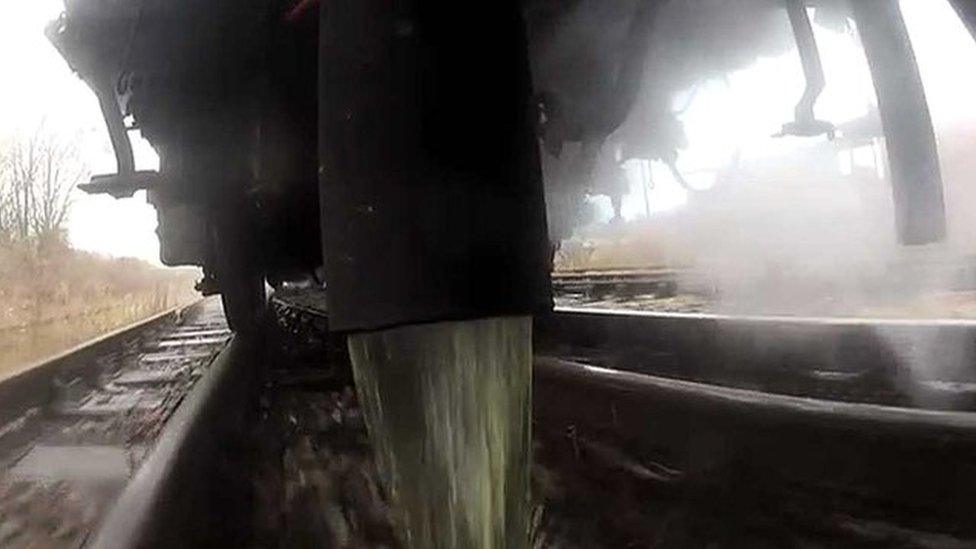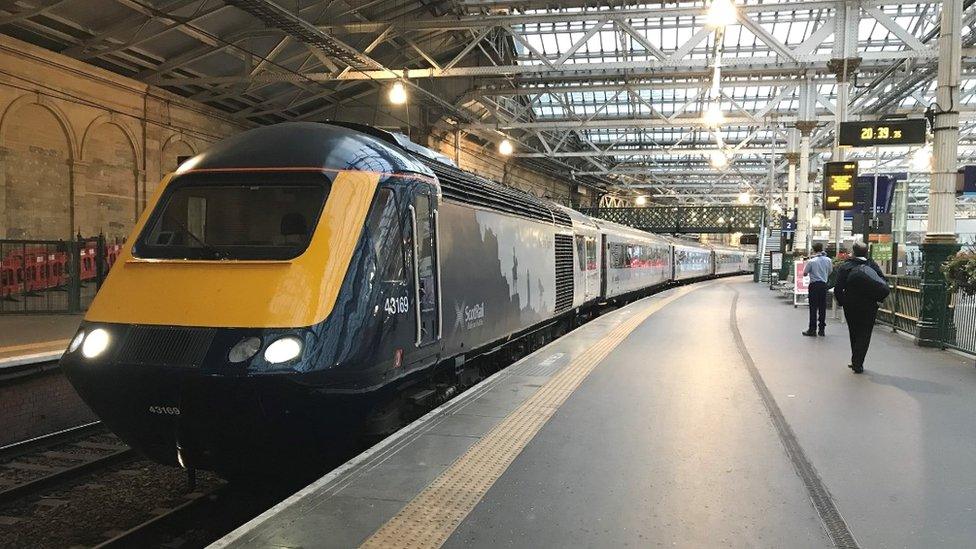Union threatens Leeds rail depot strike over sewage
- Published

Union concerns centre on maintenance workers at depots such as Neville Hill in Leeds
A union is considering balloting for industrial action in support of rail workers who have to clean sewage from rail carriages.
Unite says toilets that empty onto the railways tracks leave sewage stuck to the undercarriage.
The union is particularly concerned about staff at the Neville Hill depot in Leeds.
East Midlands Railway, which runs the depot, says it supports removing all trains that flush onto tracks.
The company said it was working to have all its trains fitted with Controlled Emissions Toilets, which empty waste into tanks, by the end of 2020.
However, Unite believes railway operators are not moving quickly enough to end the practice.
Unite's national officer for rail, Harish Patel, said: "Our members are being forced to work in disgusting conditions, which is directly endangering their health.
"The underside of trains are dirtier than sewage plants. The only way to protect workers' health is to have the trains cleaned in a separate purpose-built facility."

East Midlands Trains says it is phasing out passenger toilets that empty directly onto railway tracks
Unite says that unless specialist washing facilities are introduced at Neville Hill it will ballot its 130 members there for industrial action.
East Midlands Railway said: "The vast majority of our trains are already fitted with Controlled Emissions Toilets and over the last 18 months, we have also retro-fitted tanks to more of our regional fleet of trains as well.
"We completely support the drive by Network Rail to remove all trains without Controlled Emissions Toilets by the end of 2023 and are already working towards having all our trains fitted by the end of 2020."
London North Eastern Railway (LNER), whose trains are also maintained at Neville Hill, said only its diesel trains, which form a small part of its fleet, were not fitted with retention tanks for toilets and would be removed from service by 1 January.

Follow BBC Yorkshire on Facebook, external, Twitter, external and Instagram, external. Send your story ideas to yorkslincs.news@bbc.co.uk, external.
- Published21 June 2019
